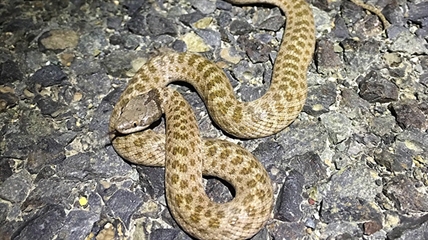
WWF lists Okanagan as one of top 5 regions in need of environmental protection
The World Wildlife Federation has listed the Okanagan as one of five areas in Canada that are most in need of environmental protection.
According to the WWF’s latest report on Canadian wildlife, the Southern Interior is home to an array of unique wildlife such as the pallid bat and desert nightsnake.
“The mix of grasslands, forest, desert-like areas and rich riparian ecosystems provides highly diverse habitats that host many of the province’s at-risk species,” the report said.
“Unfortunately, these habitats score poorly in our assessment of ecological representation. Expanding human population and related road and housing infrastructure and agriculture development have added pressure to the region where many stressed species have already been extirpated. In addition, the Okanagan is a species hotspot, and contains areas that have high levels of forest biomass and climate refuges.”
The report listed recommendations to allow Canada’s species to survive and recover, as well as reduce the country’s carbon footprint.
These include: focusing on habitat for at-risk or vulnerable species, extending protections to include lakes, rivers and wetlands, safeguarding areas with high carbon storage potential to slow climate change while providing habitat and setting restrictions within protected areas to maintain the integrity and value of the space
“For habitats in southern Canada, where high landscape fragmentation means that large, uninterrupted protected areas are increasingly difficult to achieve, we need to consider other high-standard effective conservation measures, including on private lands, to provide important connectivity. In addition, habitat restoration, planting of native species and habitat-friendly development can all play an important role,” the report said.
Other areas listed for protection are The Territories, including Great Slave Lake, Grasslands, Southern Ontario and Quebec and Saint John Watershed.
The full report can be found on the WWF’s website.
To contact a reporter for this story, email Carli Berry or call 250-864-7494 or email the editor. You can also submit photos, videos or news tips to the newsroom and be entered to win a monthly prize draw.
We welcome your comments and opinions on our stories but play nice. We won't censor or delete comments unless they contain off-topic statements or links, unnecessary vulgarity, false facts, spam or obviously fake profiles. If you have any concerns about what you see in comments, email the editor in the link above.
Join the Conversation!
Want to share your thoughts, add context, or connect with others in your community? Create a free account to comment on stories, ask questions, and join meaningful discussions on our new site.



















Leave a Reply
You must be logged in to post a comment.